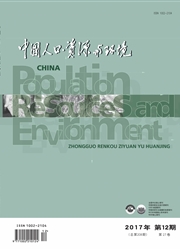

 中文摘要:
中文摘要:
生态系统服务市场化工具作为一种与命令控制型进路相对的环境政策工具,最初与污染问题相联系而出现,之后扩展至生物多样性和生态系统服务的保护,被认为能够更有效地应对市场失灵,为自然资源管理提供正向激励,有助于优化资源配置以及填补生态保护资金缺口。通过对生态系统服务市场化工具概念、类型和适用的考察,可以发现生态系统服务市场化工具的概念虽频繁出现,但界定过于宽泛模糊,几乎泛指所有带有价格成分的工具;生态系统服务市场化工具的类型划分并不一致,基于归纳的类型划分将现行市场化工具归纳为基于价格的机制、基于数量的机制和市场摩擦机制三类,而基于演绎的类型划分,则将市场化工具分为直接市场交易、许可证交易、反向拍卖、科斯类型协议、调控价格变化和自愿性价格信号六类;生态系统服务市场化工具的适用需要以生态系统服务的货币化为前提,受制于制度背景,并且应当针对市场的弊端予以法律规制,确保交易能够真正提供环境效益;市场化工具的选择不仅有赖于数字运算,还应当考虑多种因素并予以权衡,同时综合运用各种市场化或非市场化工具。中国在建立健全生态保护市场体系的过程中,应当把握生态系统服务市场化工具通过生态系统服务货币化和商品化解决环境外部性问题这一实质,理解缓解银行、生态系统服务付费、反向拍卖、生态标签和生态认证等典型市场化工具的运行机理,明确生态系统服务市场化工具适用的前提和规则,更好地发挥市场化工具的积极功效,从而实现特定的环境政策目标。
 英文摘要:
英文摘要:
Market-based instruments (MBIs) for ecosystem services, in correspondence to the command and control approaches, is a type of enviromnental policy tool which was initially associated with pollution problems, and then extended to biodiversity conservation and ecosystem services protection. It has been considered to be a more effective scheme to correct market failure, to provide positive incentives for natural resources management, to optimize the allocation of resources, and to fill the financial gap of ecological protection funds. According to the investigation to the concept, classification, and application of MBIs, it may be found that although the idea of MBIs has been used frequently, it is too broad and vague, which almost refers to all components with price tools. The classification of MBIs is not consistent, which is according to inductive method divided into price-based instruments, quantity-based instruments, and market friction mechanisms, and divided into direct markets, tradable permits, reverse auctions, Coasean-type agreements, regulatory price signals, and voluntary price signals according to deductive method. The application of MBIs should base on the monetization of ecosystem services, and subject to the institutional context; moreover, defects on the market should be regulated by law to ensure that the transaction can truly provide environmental benefits. The choice of MBIs depends not only on digital operation, but also on comprehensive consideration and weighing of various factors in order to better combine different MBIs or non-MBIs. In the process of establishing and improving the market system of ecological protection in China, we should grasp the essence that MBIs for ecosystem services is to deal with the environmental externality through monetization and commodification of ecosystem services, and we should understand the operation mechanism of typical instruments such as mitigation banking, payments for ecosystem services, reverse auction, eco-labeling and eco-certification, so as t
 同期刊论文项目
同期刊论文项目
 同项目期刊论文
同项目期刊论文
 期刊信息
期刊信息
